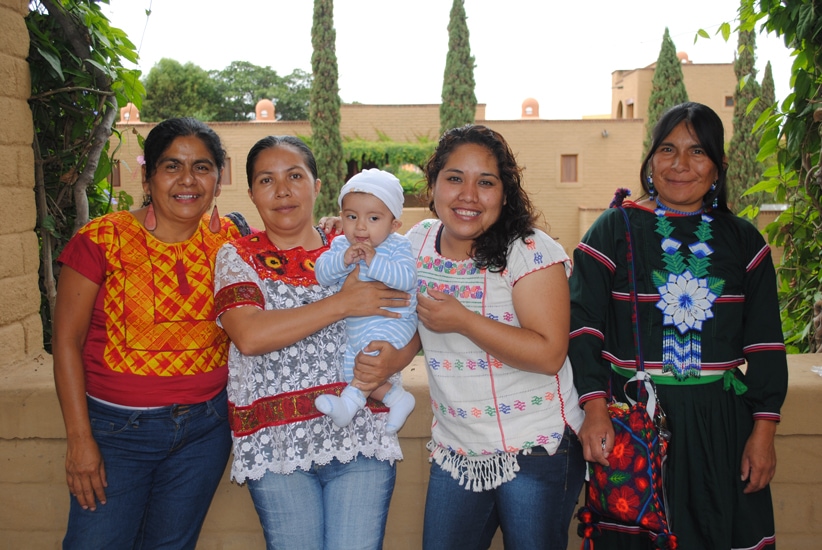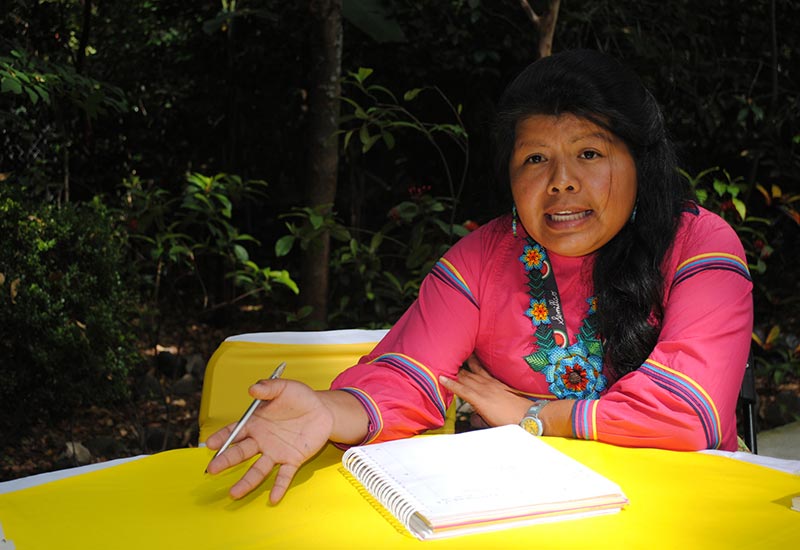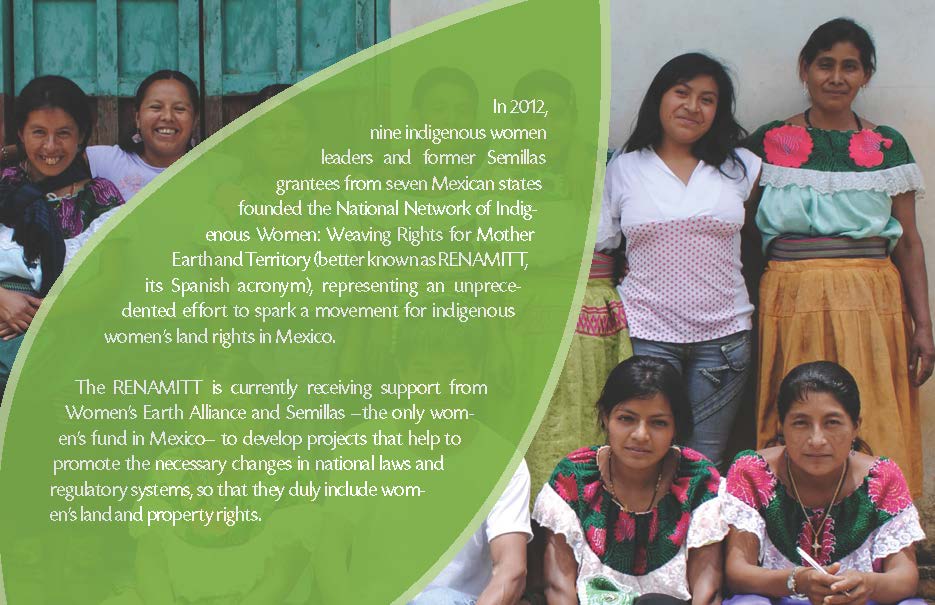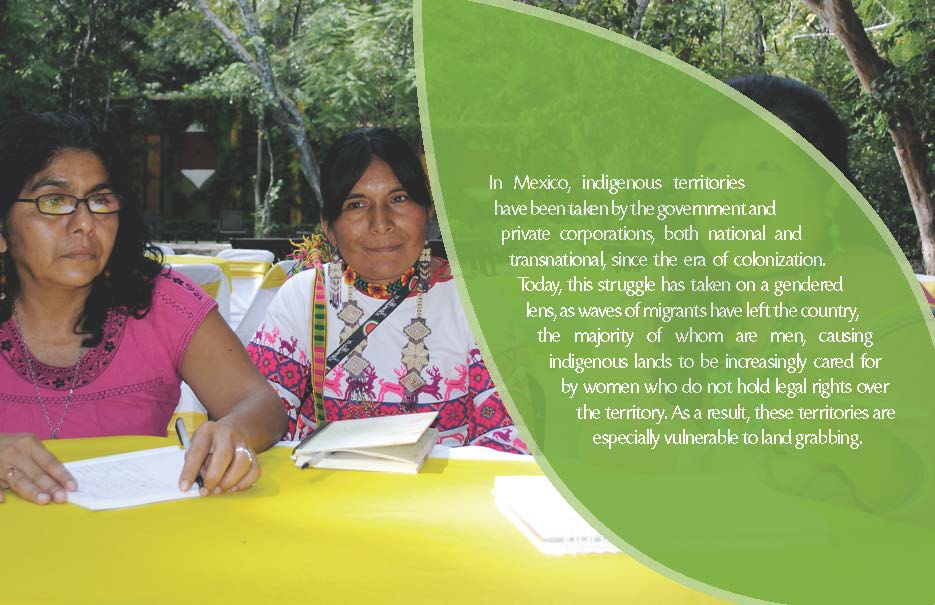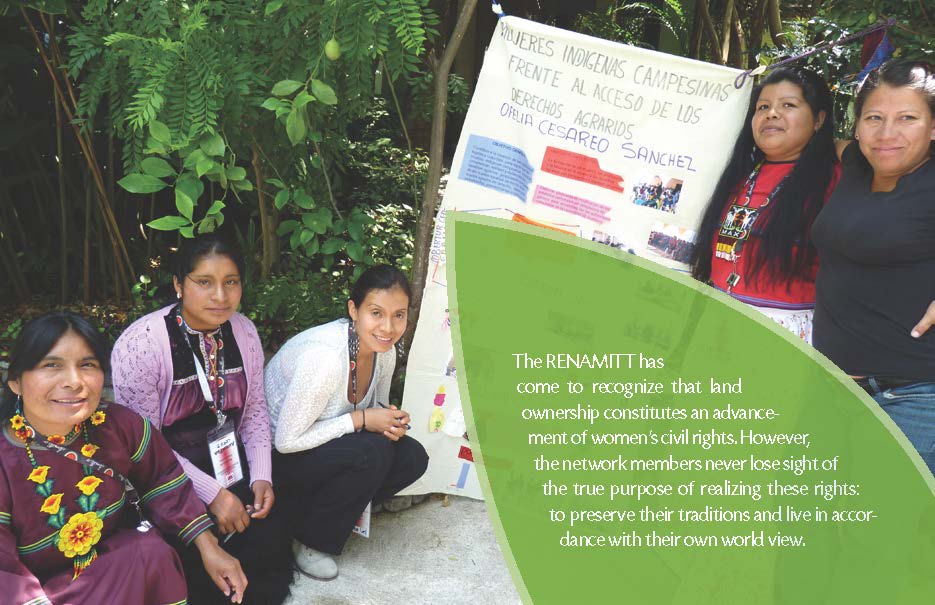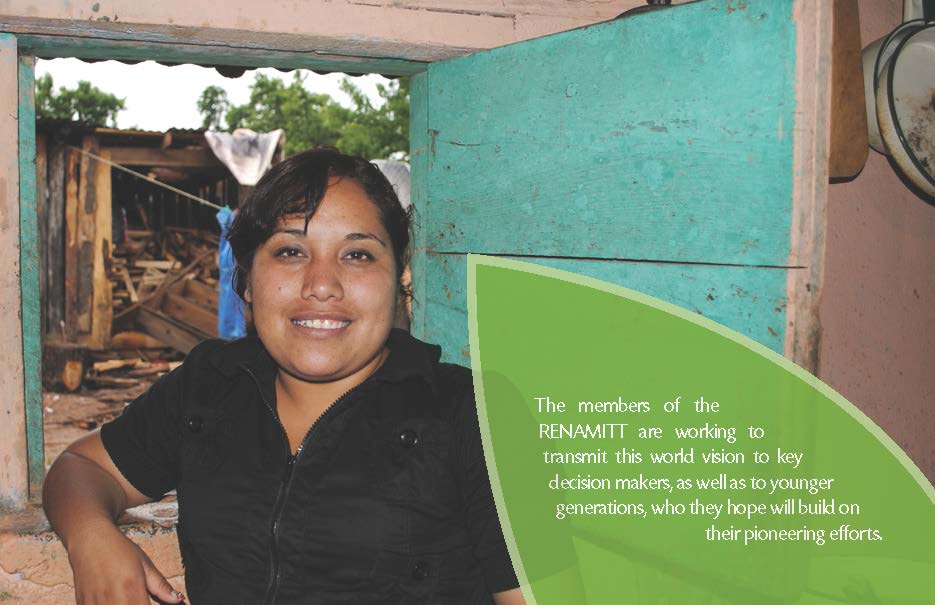Partner: Semillas and the National Network of Indigenous Women Weaving Rights for Mother Earth and Territory (RENAMITT), both based in Mexico
Goal: Protect traditional lands from being developed by the Mexican government by supporting land rights training for an emerging national network of Mexican Indigenous women who are advocating for their rights to land and property.
Impact: Indigenous women in 4 states across Mexico made significant strides in securing rights to their traditional lands, which are being undermined by new land reform laws in a time where high rates of men are migrating to cities, leaving land vulnerable to land grabs.
Meet the Women Leaders
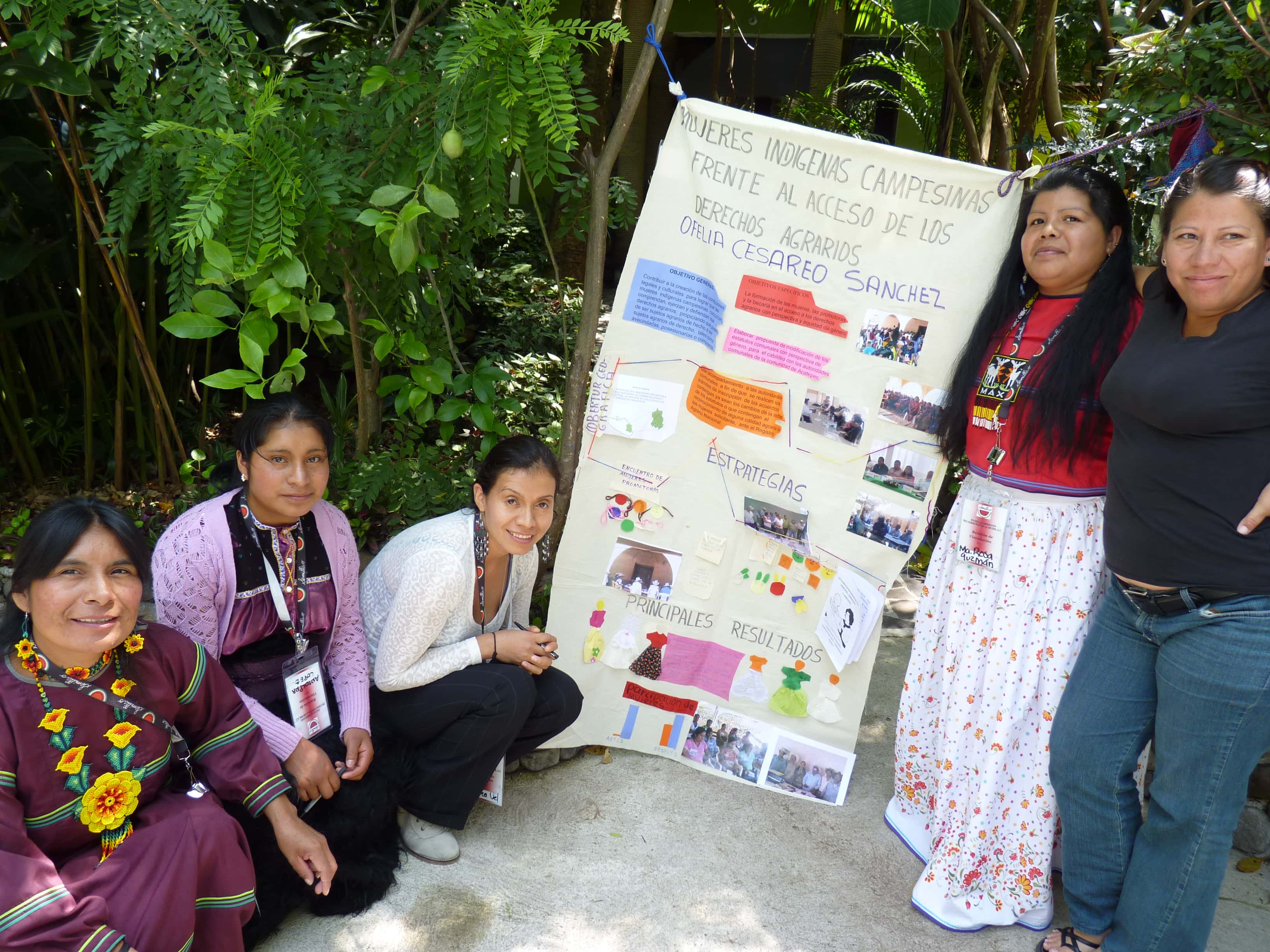
Semillas (Sociedad Mexicana Pro Derechos de la Mujer A.C.), based in Mexico City, is the largest fund dedicated to women’s causes in the country. Semillas works closely with small and emerging women’s organizations and women leaders in the common goal of improving the status of women in Mexico.
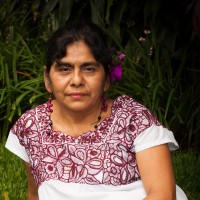
Silvia, a Zapoteca-Chinanteca from Oaxaca, says that “Nobody dared to talk about [indigenous women's land rights]," but that with the support of this partnership, she "was able to break the silence in my region. I’ve also been able to help other indigenous sisters to claim their land rights and advocate for the inclusion of women in communal assemblies, where key decisions are made.”

AT A GLANCE
Since 1990, Semillas’ grantmaking has supported 68 organizations and 95 projects in 18 Mexican states.
A recent survey in Mexico reported that only 3% of all Mexican philanthropic funds are directed to women.
In 2009, out of the 12.3 million women living in the rural sector in Mexico, only 5% had land rights.


"As indigenous women we have a connection with Mother Earth and the understanding that Mother Earth is not ours; we belong to the earth. We care for and protect everything that exists in her, including trees, materials, and minerals the Earth produces; [this is the only way] we can continue living."
—ROSENDA MALDONADO, RENAMITT

The Need
In 2013, WEA and Semillas began a multi-year partnership to support Mexican women-led grassroots environmental efforts through small grants and strategy sessions. Through this support, Indigenous women leaders have come together to promote indigenous women’s land rights in 5 Mexican states.
This work is critical since, despite the fact that women play an increasingly central role in environmental protection and management in Mexico, they are typically left out of decision-making the the implementation of environmental policies. Furthermore, gendered approaches to policy are rarely prioritized in environmental and sustainable development projects, and financial opportunities that address environmental initiatives in Mexico do not reach women or women-led projects.
The Project
This partnership supports the National Network of Indigenous Women Weaving Rights for Mother Earth and Territory (RENAMITT), a network of Indigenous women leaders promoting women’s rights to land in 5 Mexican states, including: an Odami community in Chihuahua, a Mixteca community in Guerrero, Wixarika communities in Jalisco, a Chinanteca community and an Ayuujk community in Oaxaca, and an Otomi community in Veracruz.
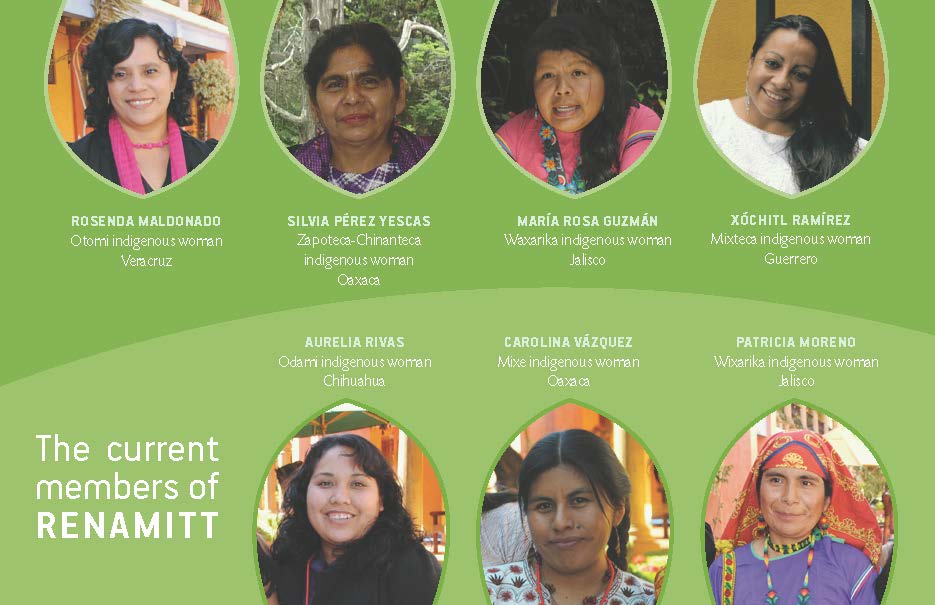
At its onset, each Indigenous woman leader had the opportunity to design and implement activities to promote women’s land rights in a way that was responsive to the local needs in her community. Workshops were held to support these leaders using the Iguatlanesti model, which focuses not only on women’s rights and land rights, but also on personal development, physical development, spiritual development, cultural history and self-esteem.
In 2015, members of RENAMITT identified a key area around which the would come together to enact change in their communities and ensure the protection of their lands and natural resources: They sought to increase awareness among Indigenous men and women in different regions of Mexico — specifically in the states of Veracruz, Oaxaca, and Jalisco — regarding the causes and consequences of the Mexican Energy Reform.
With WEA and Semillas’ support, RENAMITT aimed to:
- Strengthen community knowledge among Indigenous men and women regarding the negative consequences of the Energy Reform’s implementation on their land and property.
- Design and implement local dissemination strategies among diverse Indigenous regions to increase visibility of this issue.
- Increase the participation of young Indigenous men and women in reflection sessions focused on how to protect and defend natural resources and land from the negative effects of the Energy Reform in Mexico.
The Impact
Through the course of this project, the women leaders of RENAMITT recognized that the lack of information made available about the Energy Reform left Indigenous communities — particularly women — vulnerable to land dispossession and natural resource exploitation. In response, RENAMITT focused much of their efforts on translating the highly technical language of the bill to ensure it is accessible to communities’, sharing information on the legal constitutional framework and laws that regulate Indigenous communities’ access to and enjoyment of their territories and resources, and mobilizing community action.
Specifically, RENAMITT has achieved the following:
- Through workshops, site visits, legal aid, training, and policy advocacy, RENAMITT has reached over 600 people, including 280 indigenous women — among them community promoters, traditional authorities and local justice officials — to advocate for Indigenous women’s land rights. Of the women RENAMITT has reached four have become community leaders.
- 9 Indigenous Nahua women obtained their agrarian certificates in Veracruz, and 12 more certificates have been requested.
- A municipal women’s institute was created in an Ayuujk municipality in Oaxaca in order to better respond to local women’s needs.
- Three radio spots were produced around agrarian law, land rights, and women’s roles. The first focused on the rights of Indigenous women in Mexico to own land; the second focused on the expropriation and dispossession of Indigenous lands as a result of federal reforms; the third specifically highlighted indigenous communities in Oaxaca and women’s access to land. Additionally, the radio program “Mother Earth’s Voice” has indirectly benefitted 12,000 people as a broadcast through Mixe Jenpoj community radio.
- RENAMITT members have been able to access alliances with other organizations, such as The Mexican Institute for Community Development, to advocate for RENAMITT at the state-level. Representative even attended the National Forum of Indigenous Women, and signed a formal pronouncement regarding the national energy reform.
- RENAMITT members have designed dissemination strategies — including distributing pamphlets and hosting public speeches and training workshops — among diverse indigenous regions to increase visibility of the impacts of a recent energy reform bill which threatens indigenous lands. Their efforts have spanned seven communities in Veracruz, three communities in Jalisco, and eleven communities in Oaxaca.
As a result of their efforts, the members of RENAMITT have been able to reach isolated communities with critical information on the Energy Reform, and have seen a marked increase in women’s participation in community workshops. They have also built key alliances with fellow grassroots Indigenous women’s organizations working to promote and defend Indigenous women’s human rights. These alliances have laid the foundation for collaboration, support, training and networking as this work continues.
About Our Partner
Semillas (Sociedad mexicana Pro Derechos de la Mujer A.C.) is an organization based in Mexico City that works closely with small and emerging women’s organizations and leaders to improve the status of women in Mexico. Semillas is not looking to provide a short-term cure for the conditions of injustice and inequality that many Mexican women experience. Instead, its work is to target the roots that generate these conditions. Like WEA, Semillas believes in solutions that come from community-based organizations.
Semillas provides financial resources, accompaniment and training to women leaders and organizations acting in favor of the rights of women in various states throughout Mexico.

